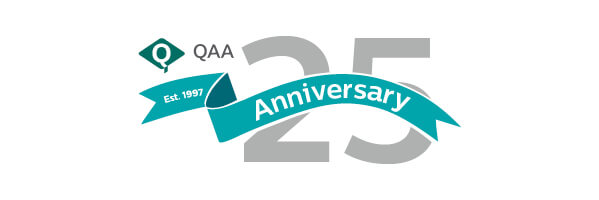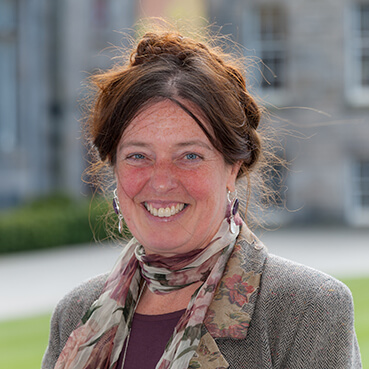12 July 2022
Embedding Education for Sustainable Development

Author
Dr Rehema White
Senior Lecturer, School of Geography & Sustainable Development, University of St Andrews
As QAA celebrates 25 years championing UK quality and standards, Dr Rehema White from the University of St Andrews discusses ways to assess and strengthen Education for Sustainable Development in the UK and beyond.
It is graduation at the University of St Andrews here in Scotland. The town is full of graduates, giddy with joy and relief. Proud parents, family and friends walk to the ceremonies along cobbled streets. The celebration itself is marked by ancient rituals in Younger Hall, and continues with a procession down North Street, (led by a piper who himself graduated this year), and on to the garden parties and, later, dinners.
But have we given these graduates the knowledge, skills and capacities that they need both to thrive as individuals and to make a positive change in the world? They step into a society experiencing environmental crises, increasing social inequality and security issues at home and abroad. Higher education institutions have an obligation to prepare students not only in specialist subjects, but also to facilitate them to envision and pursue a better world through Education for Sustainable Development (ESD).
The QAA/Advance HE ESD Guidance that was published last year gives some insights into what we mean by this concept and how we might put it into action in our various modules, programmes and institutions. However, as we increasingly accept the need for such action, universities and colleges are seeking mechanisms to evaluate and understand the quality and impact of what we deliver.
We are leading a QAA Collaborative Enhancement project on Monitoring and evaluating Education for Sustainable Development in higher education. The University of St Andrews, together with partners at the University of Edinburgh, University of Highlands and Islands, EAUC (The Alliance for Sustainability Leadership in Education) Scotland, Learning for Sustainability Scotland, SOS-UK (Scotland) (Students Organizing for Sustainability) and Sparqs (student partnerships in quality Scotland) is co-designing, piloting and proposing routes to assess and strengthen ESD in the UK and beyond.
We began by collating existing experiences and ideas on this topic. Some providers have already explored how to measure baseline and changes in ESD, but these have tended to be institution specific. We developed a draft framework and held a workshop to co-design our proposed system. There were vigorous discussions. How do we build on the enthusiasm of motivated young people entering higher education fresh from school strikes, climate change activism and youth action? How do we include student voices in our university processes? Can we capture additional data without increasing the bureaucratic burden on academic and managerial staff? How do we quantify changes? Can we build in reflective learning?
These debates have supported our emerging ideas for a multiple stage process that can be adapted by individual higher education institutions. Firstly, develop a conversation on what ESD means in context, hearing different voices while ensuring the impetus for radical transition is discussed. Secondly, map current ESD, gathering information on where and how deeply it is developed across the curriculum. Thirdly, develop a plan to support ESD.
This might include enablers such as staff training, an ESD teaching award, inclusion in new programme and promotion criteria, for example, along with some targets and indicators. Finally, assess the quality and outcomes of ESD through quantitative and qualitative measures, including reflective questioning by educators and learners, and focusing on sustainability competencies as well as knowledge and skills. These findings will allow you to adapt and plan for future cycles of ESD action.
Over the summer we are planning how to pilot this framework in our partner institutions. Subsequent to these trials, we will modify, then publish and share our results. Our aim is to offer a theoretical framework, along with practical tools, to enable higher education institutions to monitor and evaluate ESD in their own diverse contexts.
The sun is shining, and we have cakes and a prize giving for the graduates from our department. This is a moment to pause and appreciate their success, but also to look forward and imagine what they might achieve in the future. We hope that our framework for monitoring and evaluating ESD will help to ensure that every graduate is a potential change agent, equipped with the abilities to know, do and be the transformation to sustainability.
QAA and Education for Sustainable Development
QAA’s Collaborative Enhancement Projects (CEPs) offer funding opportunities for groups of our member institutions to work together on projects of shared interest which enhance the quality of their own students' learning experiences and develop outputs to support the wider higher education sector. We are funding four CEPs focusing on Education for Sustainable Development.
The Education for Sustainable Development Guidance along with other published ESD resources are on our ESD web page.
